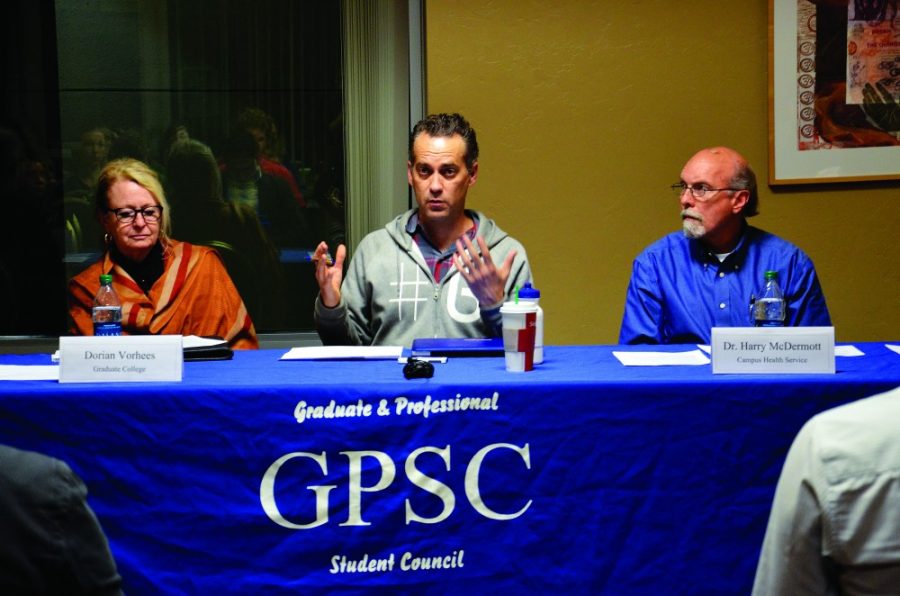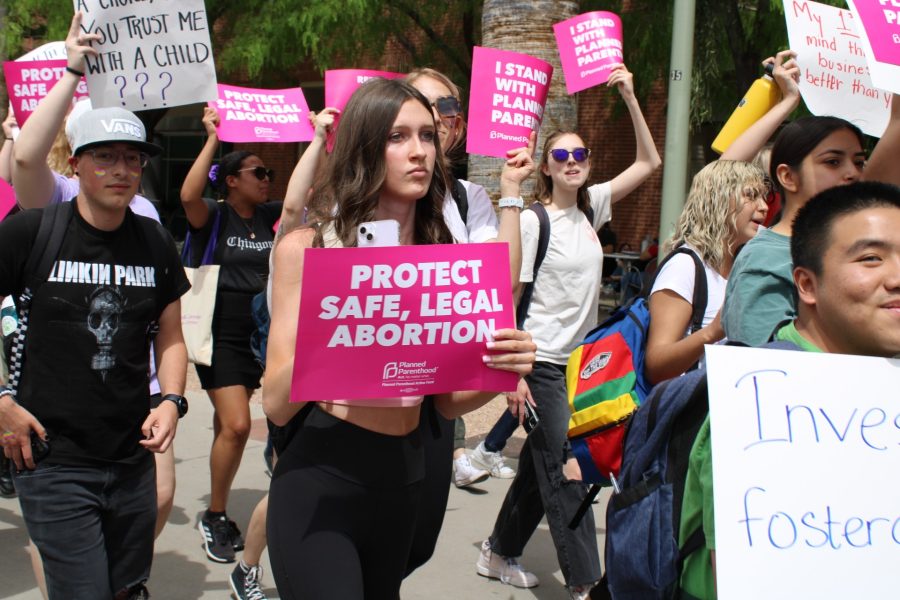Questions have arisen among graduate students over the rollout of the Affordable Care Act.
The Graduate and Professional Student Council hosted an information forum Wednesday evening in the Student Union Memorial Center with several administrators in an attempt to address concerns about the status of students’ health care coverage.
The panel, which included Andrew Carnie, dean of the Graduate College, and Dr. Harry McDermott, executive director of Campus Health Service, fielded questions from a room full of graduate students about what effects the Affordable Care Act will have on UA-provided insurance, whether or not it will cover international students when they are out of country and more.
The employer mandate of the Affordable Care Act requires any employers with more than 50 employees provide their full-time employees with health coverage. It will take effect in January 2015, and the UA is already working to comply with the law, according to Helena Rodrigues, director of Human Resources Strategy and Planning.
“If you look like a full-time employee, as far as the federal government is concerned, you need to have the same benefits package as I have,” Rodrigues said.
Much of the concern among graduate students surrounds whether or not they will still be considered part-time employees, according to Zachary Brooks, president of GPSC and a second languages acquisition graduate student. Current graduate students will have to be considered full-time employees if they work more than 30 hours a week, which has some major implications.
“The thing that could be a problem for some graduate students is that if they got over to full-time status, they wouldn’t be students anymore and they would have to pay their debts immediately,” Brooks said.
International students at the UA could also lose their visa status because of the loss of student status, according to Carnie.
Brooks said he has been receiving emails from graduate students who were unsure of the status of their part-time jobs because of messages they had been receiving from their employers at the UA.
“As it turns out, a lot of those departments and colleges didn’t have to do that,” Brooks said. “They were confused also by the implementation of this giant federal policy.”
Students have been raising concerns about what this new health care policy means for them, according to Lysette Davis, a higher education graduate student and the College of Education’s representative to GPSC.
“A lot of students just don’t know what’s happening or how they’re going to be affected,” Davis said. “A lot of students also might not know that they can’t work as much now.”
Brooks said that with assistance from the Graduate College, GPSC has created an FAQ to help answer questions from graduate students about how the Affordable Care Act will affect them.
The confusion regarding the implications of the employer mandate on universities has led the American Council on Education to ask for additional assistance from the federal government in implementing the requirements, according to Rodrigues.
“There have been repeated requests to the federal government for more guidance on implementing the law in higher education,” Rodrigues said. “We have not yet received additional guidance.”
The immense size of the law has posed challenges to the university in implementing its requirements, according to Rodrigues.
“We’re trying to find a way to make it work on this campus,” Rodrigues said. “It’s a very confusing law.”









